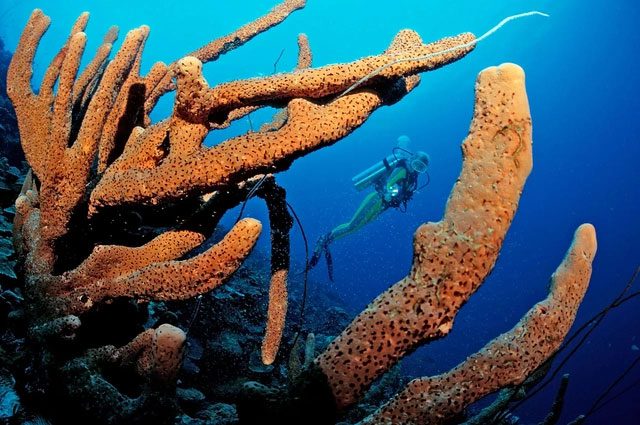Scientists Discover Sponges Can Help Measure Ocean Temperatures
Global warming is a pressing issue concerning the entire world. Recently, international scientists have conducted a groundbreaking study on this matter. It suggests that human-caused climate change may have occurred earlier and is more severe than we previously thought. The tool that enabled them to make this assessment is an ocean-dwelling creature—sponges.

Sponges can help measure ocean temperatures. (Photo: The New Yorker)
A small quantity of centuries-old sponges from deep within the Caribbean Sea has led some scientists to believe that the world has already exceeded the goal set by the Paris Agreement to limit global warming to 1.5oC since pre-industrial times. Specifically, by 2020, global temperatures had risen by more than 1.7oC. As of early 2024, global temperatures are increasing by up to 1.8oC compared to pre-industrial levels.
To reach this conclusion, scientists analyzed six species of long-lived sponges, one of which was over 320 years old at the time of collection. Sponges are simple creatures that filter water. Many species have long lifespans, and as they grow, they record the conditions of their surrounding environment in their skeletons, such as temperature, pH, and CO2 concentrations, much like an underwater thermometer. Thus, they become an ideal measurement tool.
Amos Winter, an ancient marine biologist from Indiana State University, stated: “Sponges are truly the heroes of ocean temperature measurement. They accurately record environmental parameters. Sponges have high precision because we can track the amounts of calcium and strontium that accumulate regularly in the organism’s skeleton. Warmer water results in more strontium compared to calcium, while cooler water leads to a higher ratio of calcium to strontium.“
Scientists hope that their new research will once again sound the alarm about climate change, prompting the world to take more positive actions to protect its living environment.


















































